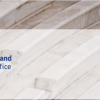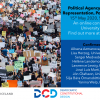
Public participation – to what extent?
In recent years, there has been a rising interest in increasing public involvement in political decision making. Discussions on this topic have predominantly revolved around the possibility of increasing national referendums, or even introducing national initiatives – meaning that a certain proportion of the public would be able to introduce issues to the Parliament. The Icelandic Constitution currently includes a few clauses on national referendums, which stipulate the circumstances in which they should be held. Firstly, a referendum should take place if Althingi removes the president from office (Article 11). Secondly, if the president refuses to sign bills passed by Althingi (Article 26) and thirdly, if Althingi passes an amendment to the status of the Church of Iceland (Article 79). In Iceland, a large majority or minimum voter turnout is not required for the results of referendums to be binding. In total, eight referendums have been held in the history of the nation. Currently, there are no clauses in the Constitution that allow for the possibility of national initiatives.
During the deliberative meeting, participants were asked to give their views on nine proposals. After the discussion, changes could be seen in participants’ attitudes toward these proposals:
1. The President should be able to put new legislation to a referendum (from 85% to 90%).
2. The results of national referendums should generally be binding for the government (from 82% to 83%).
3. The public should be able to demand a national referendum on new legislation if such a demand is supported by a certain proportion of voters (from 74% to 80%).
4. The results of a referendum should be binding if an increased majority supports it – 2/3 or more (from 62% to 54%).
5. The public should be able to demand a national referendum on general issues, not only new legislation (from 57% to 44%).
6. The public should have the opportunity to propose bills to Parliament with the support of a certain proportion of voters (public initiative) (from 49% to 59%).
7. A minority of MPs, e.g. 1/3, should be able to put new legislation to a national referendum (from 31% to 43%).
8. Any policy issue can be the subject of a referendum (from 31% to 22%).
9. The results of referendums should only be consultative (from 15% to 8%).
Topic 1: More national referendums – why, or why not?
The possibility of extending circumstances in which national referendums can take place is a source of debate, as some consider them to be ill-suited to representative democracy. In the information material sent to participants before the deliberative meeting, arguments for and against issues regarding national referendums and initiatives were presented. For example, arguments for implementing some of the various forms and processes of referendums listed above included that they are a good way for the public to hold elected officials accountable. Additionally, they can increase civic awareness and promote democratic participation. Referendums can also be useful because it’s important that public criticism is expressed in an organized and formal manner, especially if the public feels that the Parliament has veered off course.
Arguments against referendums included that while public scrutiny is important in representative democracy, too many referendums can undermine the legitimate authority of elected officials. They can also increase tensions between power holders and voters, and their repeated use might reduce the interest of the public in participating. Still another argument was that legislature cannot be too sensitive to the demands of special interests, and that frequent referendums might hinder important progress in the Parliament. As such, increasing the use of national referendums is a controversial issue.
After the discussion, an overwhelming majority of participants thought that the president should continue to be able to refer new laws to a referendum (90%), considering it to be an important safeguard and a counterbalance to Althingi. However, many wondered if other actors should have this power as well. After the discussion, 43% of participants agreed that a minority of MPs should be able to put new legislation to a national referendum. Some participant feared that this power could hinder progress in Althingi. and that trivial matters might be referred to a referendum because of tensions between MPs. Others thought it to be a good option, giving the minority tools to voice its opinion through other means than filibusters. While some participants were worried that it could create a “state of war” in Althingi, others thought it could encourage more cooperation between MPs, who would try to avoid national referendums. Still others considered this power to be unnecessary if the public could demand national referendums.
A large majority of participants (80%) thought that a certain proportion of voters should be able to demand a national referendum on new legislation. Many considered this power to be important, as the president could still decide to sign bills despite pressure from the public not to do so. Many participants discussed what proportion of voters could demand a referendum. Some considered 10-25% to be a minimum, while some wanted the proportion to be even higher. Others worried that this power would cause too many referendums to take place, which would be ill-suited to Iceland’s representative democracy. Elected officials – being paid to research issues in depth – would be disempowered to make difficult decisions. However, at least one participant thought that politicians would be more careful in attempting to implement controversial laws and regulations, knowing that they ran the risk of a referendum.
Some participants also worried that the public didn’t have the will or the ability to research the topics properly, and that the information provided to voters leading up to the referendum would need to be carefully constructed, referencing the danger of propaganda and “fake news.” The questions in the referendum would additionally need to be carefully phrased. One participant said that while some issues were simple, others were very complicated – e.g. referencing Icesave – and not accessible for the public. For issues such as these, a lot of research would be needed to arrive at an informed opinion. This participant worried that if complicated matters were put to a referendum, the public would vote emotionally rather than rationally. Another participant said that the public elects MPs to research issues in depth, which is something that the general public does not have time to do. Yet another said that it was simply a question of the procedure, which would need to be careful and professional. One group of participants in particular wondered who should present appropriate information to the public leading up to a referendum: politicians or the media?
The proportion of participants who wanted the public to be able to demand a referendum on general issues, not only new legislation, went from 57% to 44% after the discussion. When discussing what topics belonged in a national referendum, participants were not in agreement. One problem was that participants were not sure what counted as a “general issue”. Some emphasized that matters put to a national referendum needed to be of the nature that they affected everyone. Some mentioned that the issues needed to be related to “core values”, while others said that they should only concern the “big”, “serious” or “important” issues. If too many issues could be put to a referendum, the public might grow tired and participate less. Many thought that issues related to taxes and government budgets were badly suited for referendums and should be exempt. Others mentioned that issues that concerned human rights and the rights of minorities needed to be exempt as well. In one group, a participant said that the public shouldn‘t be able to vote on small issues without taking the entire context into consideration. Another disagreed, doubting it was advisable to create a list of issues that were exempt from referendums. Still another responded that such was the case in other countries.
Topic 2: Should national referendums be binding?
After the discussion, a very small percentage of participants (8%) thought that national referendums should only be consultative. The proportion of participants that thought that results should only be binding if the matter was supported by an increased majority (2/3 or more) went from 62% to 54%. After the meeting, a large majority of participants (82%) wanted the results of referendums to be generally binding.
In one group, a participant said that if referendums were not binding, they were pointless. Another participant said if they were not binding, people could lose faith in democracy. These sentiment were largely echoed in other discussion groups. However, many were also of the view that conditions needed to be in place in order for results to be binding. One participant said that the results should be binding if a certain proportion participated. A minimum threshold of participation was discussed in many groups. For example, 30% would not be enough. Some said that 50-60% of voters would need to participate in order for the results to be binding.
Topic 2: Allowing for citizen initiatives – why, why not?
After the discussion, 59% of participants agreed that the public should have the opportunity to propose bills to Parliament with the support of a certain proportion of voters, increasing from 49% before the discussion. A majority of participants (67%) also agreed that a process that would make it easier for the public to suggest new legislation would increase the public’s influence and strengthen democracy.
In the information material sent to participants before the deliberative meeting, possible arguments for national initiatives included that the public should be able to influence parliamentary agenda and processes without undermining the role of elected officials. National initiatives could enable the public to propose issues without intervening in the work of the Parliament. Additionally, national initiatives could improve relations by encouraging MPs to seek the opinion and approval of the public, and encourage them to address issues on the basis of the public’s recommendation. Arguments against national initiatives included that the Parliament needed to decide its agenda on its own and initiatives would interfere with this, in addition to reducing efficiency. According to some, special interests could easily overtake national initiatives and force the Parliament to address issues that did not enjoy wide support. While public consultation is important, organised discussions and calls for ideas were better choices than national initiatives, according to one argument.
Some participants felt that provisions in the Constitution on national initiatives were unnecessary, as the public could already contact MPs and ask them to discuss issues in the Parliament. Therefore, national initiatives were not needed and the focus should rather be on improving relations between MPs and the public. One participant said that most MPs, if they knew that a large part of the nation was interested, would be willing to take issues up in Althingi. Others thought national initiatives to be potentially useful, as they could create political pressure on the government and Althingi. Some were not sure what the process would look like and wanted further information.
One participant mentioned that he imagined national initiatives to be an important part of implementing direct democracy into Icelandic politics, but that the question of the procedure was very important. One participant considered initiatives to possibly have a dark side, for example if they concerned taking rights away from minorities. Participants discussed what the process and framework around national initiatives should look like, so that they could not be abused. In one group, a participant suggested that one national initiative should be allowed each year. Participants in other groups also suggested limits on how many national initiatives should be allowed, as to not overload the Parliament.
It is worth noting that the question of national referendums and initiatives also seeped into other discussions the meeting, for example when participants discussed the Icelandic presidency and amendments to the Constitution.





















